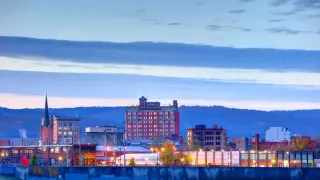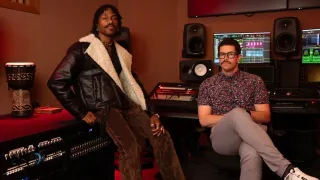January 19, 2018
The Final Year
Karin McKie READ TIME: 3 MIN.
If you miss political competence or genuine humanity, or if you're pining for foreign policy "based on values" that actually considers life, liberty and the pursuit of happiness, then Greg Barker's poignant documentary "The Final Year" will fill those longings with hope then dread.
Barker films the final year of President Barack Obama's second term, with diplomatic leads on the road and in the field. This is in stark contrast to the current disembowelment of the State Department and its devastation of American exceptionalism around the planet.
The principal players are U.S. U.N. Ambassador and former Harvard government professor Samantha Power, National Security Advisor Susan Rice and Deputy National Security Advisor Ben Rhodes, along with a staff of 30 in a small office suite under Secretary of State John Kerry and Obama, the first president to spend his entire term at war.
This team was chosen as antithetical to a "dangerous group think," says Rice. They operated under the mantra "give diplomacy a chance," and their job was not to just avoid war, but to make peace.
The team felt a clock ticking on major initiatives in Cuba, Syria, "a complete meltdown of humanity," and climate change. Rhodes, who left a writing career for politics at age 23 following 9/11, had known the president the longest, and they had a unique "mind meld."
Power is formidable in her intellect, passion and compassion, noting that in witnessing the many atrocities her job held was "not just an instinct, but also a responsibility."
Their imprimatur is rooted in "what we stand for and how we act and not just impose our will on people." Obama is noted for carrying "the human consequences of his decision-making."
"His heart breaks," one notes.
Obama appreciates how Kerry evolved from soldier to war protester to statesman, and how diplomats cannot only be motivated by money and power, but mostly by stories.
The documentary follows Obama to Hiroshima for the 71st anniversary of the bombing, where his and Rhodes' speech remark upon the "inevitable tragedy of war" before the president hugs survivors. Power goes to Nigeria to help families find and free their kidnapped daughters from Boko Haram and shares the success of American National Parks with Cameroon leaders. Kerry goes to Greenland to see climate impact on icebergs up close.
They go to Laos, where two million tons of bombs were dropped between 1964 and 1973, more than on Germany and Japan combined and the most in history; many remain unexploded and continuously harm modern populations.
Obama's final trip is to Greece, where democracy was born and the most important title was created: Citizen.
In May, the group observes that the State Department is not the Pentagon, a distinction all but vanished today. Rhodes is sure that Trump won't be elected (because there were be "no grown-ups around"), and worries about being buttonholed with questions like, "What is worse, ISIL [ISIS] or climate change?" knowing that the latter could potentially kill many more, but the former is a more tangibly understood adversary.
"Diplomatic speed-dating," the U.N. General Assembly meeting, is chronicled in September, where Obama gives his farewell address to the diplomats representing 65 million displaced people. The snippets remind viewers that advocates must use the time they have, and in a prescient statement Kerry adds, "we have a moral obligation to make judgments based on facts, not fiction."
We see the team's acknowledgment that it took them a while to separate Putin from the Russian Federation and that at first he was not in our national interest.
One of the final, painful scenes is election eve, where Power, former ambassador Madeleine Albright, Gloria Steinem, and 37 female ambassadors (out of 197 countries) gather to watch the race be stolen by a racist. But, she said, "We're in this for the long haul, not disappearing into the night."
She hopes for a different, future happy ending.
In the doctor's office, I hate reading old publications. I feel like a time-traveler who has already learned the lessons earnestly laid out in previous headlines. This movie offered the same feeling - a slow-motion train wreck we're powerless to stop. We know what's coming, so all we can do in revel in what once was: Skillful public servants at the top of their games on a mission to help humanity. In the current political wasteland, we can only hope that this documentary can provide a roadmap for the future.
Power attends the citizenship ceremony for her live-in nanny, watching an oath she took herself after she emigrated from Ireland as a child. She gives a speech to the group, saying, "The ability to shape America is now your right. We are counting on you to exercise it."
"We welcome you with open arms."






